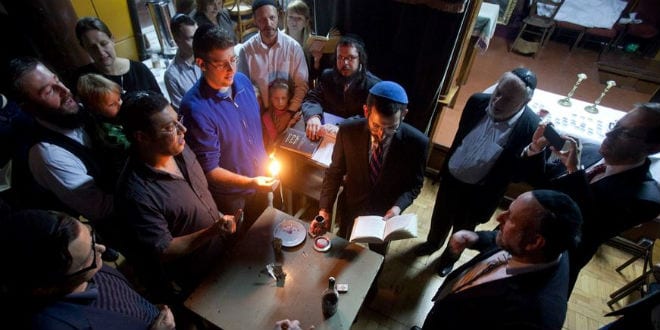
One day in 1997, while working as Deputy Communications Director for then-Israeli Prime Minister Benjamin Netanyahu, Michael Freund received a letter that caught his attention. He didn’t know it then but it would change the course of his life. It was sent by a small community in northeastern India called Bnei Menashe, who claimed they were descendants of one of the Ten Lost Tribes of Israel and who wished to return to Israel.
Freund volunteered to help them and soon discovered that there are “lost” Jews all around the world seeking to reconnect with their Jewish roots. He founded Israel Returns, an organization that searches for and assists the Lost Tribes of Israel and other “hidden Jews” seeking to return to Zion.
Over the past few weeks, Israel Returns has helped 250 Bnei Menashe return to Israel. However, not all of their focus is on the Bnei Menashe. There are nine other locations that Israel Returns works with Jewish communities from around the globe. One of them is with the Subbotnik Jews of the former Soviet Union.
Israel Returns will be presenting this group of Jews with a special guide for the Shavuot [Pentecost] holiday. The guide includes prayers, a list and explanation of customs and some artwork connected to the holiday. It is just one of the ways in which Israel Returns hopes to bring joy to the holiday for this group of Jews.
The Subbotnik Jews survived Czarist torment, Nazi persecution and Communist tyranny, yet heroically continued to cling to their Jewish identity in the most difficult of circumstances.
“This publication is part of our ongoing efforts to assist them with their return to the Jewish people,” says Michael Freund, chairman of Israel Returns and recent recipient of the Moskowitz “Lion of Zion” Prize for excellence in Zionist achievement.
The festival of Shavuot commemorates the Jewish people’s receipt of the Torah on Mt. Sinai as they journeyed in the desert. In Jewish mystical tradition, Shavuot is likened to a wedding ceremony between God and Israel, with the Torah serving as the Ketubah, or marriage contract, which binds the two together. Hence, the holiday is infused with a special atmosphere of spirituality.
When asked why specifically the booklet was made for Shavuot, Freund responded: “In a sense, Shavuot/Pentecost takes on added meaning for the Subbotnik Jews. For just as the people of Israel became wedded to God on Shavuot, so too did the Subbotnik Jews forge an eternal bond with the Creator when their forebears embraced the Torah some two centuries ago. We hope that the Subbotnik Jews will draw strength and inspiration from this guide, and we pray that through the merit of celebrating the giving of the Torah on Shavuot, we shall soon witness the ingathering of all the dispersed of Israel, reunited again as one in Zion.”






